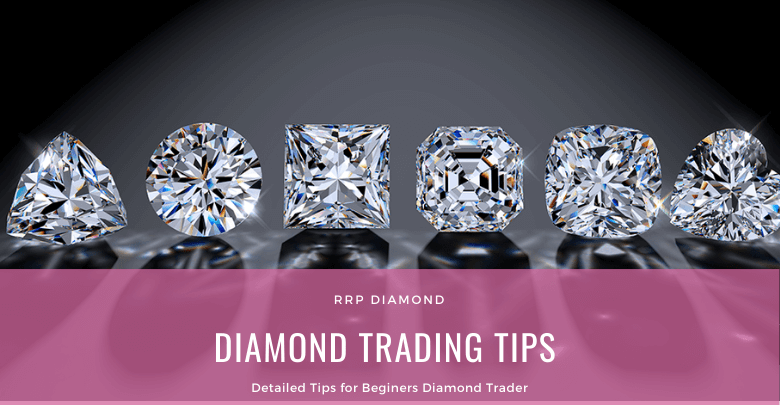Becoming a diamond dealer requires obtaining proper licensing and certification within the industry. To become a diamond dealer, you need to gain in-depth knowledge of the diamond market, complete a gemological course, and obtain a diamond dealer license.
Additionally, establishing relationships with suppliers and learning about diamond grading are crucial steps in becoming a successful diamond dealer. Becoming a diamond dealer involves more than just buying and selling diamonds. It requires a deep understanding of the industry, including knowledge of diamond characteristics, grading, and pricing.
It’s also important to establish connections with reliable suppliers and build a trustworthy reputation within the industry. This article will provide a comprehensive guide on how to become a diamond dealer, including the necessary qualifications, licensing requirements, and key steps to success in the diamond trade. Whether you’re a budding entrepreneur or simply interested in the diamond business, this guide will equip you with the essential information to embark on a career as a diamond dealer.
Getting Started
Embarking on the journey to becoming a diamond dealer involves understanding the diamond industry, honing negotiation skills, and building a reputable network in the industry. Research on diamond grading and sourcing authentic stones is essential for success in this competitive market.
Understanding the Diamond Industry
If you’re looking to embark on a career as a diamond dealer, it’s crucial to have a solid understanding of the diamond industry. Diamonds are not just beautiful gemstones; they hold significant value and have a complex supply chain.
In the diamond industry, there are multiple players involved, including diamond miners, manufacturers, wholesalers, and retailers. Each stage of the supply chain has its set of challenges and opportunities. To succeed as a diamond dealer, you need to familiarize yourself with the entire process, from the mining of rough diamonds to the retail sale of polished diamonds. Gaining knowledge about the industry will provide you with insights into the various factors that influence diamond prices and market trends.
Researching the Market
Now that you have a comprehensive understanding of the diamond industry, it’s time to focus on researching the market. In any business venture, information is power. By conducting thorough market research, you will gain valuable insights into the current and future trends of the diamond market.
Start by exploring the types of diamonds that are in demand and the target markets for these diamonds. Consider factors like shape, cut, color, carat weight, and clarity, as these characteristics significantly impact a diamond’s value. Investigate the preferences of potential buyers, such as whether they prioritize size over quality or vice versa.
|
|
By gathering this information, you will be equipped to make informed decisions about which diamonds to buy and sell, where to find potential buyers, and how to position yourself in the market.

Credit: www.youtube.com
Education and Training
Becoming a successful diamond dealer requires a solid educational foundation and specialized training in gemology and diamond grading.
Gaining Knowledge in Gemology
To excel in the diamond industry, first focus on gaining a deep understanding of gemology – the study of gemstones. This knowledge will help you identify gemstones accurately.
Learning about Diamond Grading
Master the skill of diamond grading to assess a diamond’s quality and value accurately. Understanding the 4 Cs – Cut, Clarity, Color, and Carat weight is crucial for a diamond dealer.
Also Read: How to Become a Pokemon Professor
Legal and Compliance
To become a diamond dealer, it is essential to understand legal and compliance requirements, including obtaining necessary licenses and adhering to industry regulations. Seeking legal counsel and compliance experts can help navigate the complexities of the diamond trade and ensure that all legal obligations are met to operate as a reputable dealer in the industry.
Understanding Diamond Certification
Before becoming a diamond dealer, comprehend diamond certification standards set by reputable organizations.
Compliance with Industry Regulations
Ensure adherence to industry regulations governing diamond trading to maintain ethical standards.

Credit: www.rrpdiamonds.com
Building Business Connections
One of the most important steps in becoming a successful diamond dealer is to build a strong network within the industry. Networking allows you to connect with other professionals, potential clients, and experts in the diamond industry. By attending industry events, conferences, and trade shows, you can meet like-minded individuals who share your passion for diamonds.
Another crucial aspect of building business connections as a diamond dealer is establishing relationships with reliable suppliers. Suppliers play a vital role in your business, as they provide you with a steady supply of diamonds. It is essential to find trustworthy suppliers who can offer high-quality diamonds at competitive prices.
Besides attending industry events, you can also join online forums, social media groups, and professional organizations that are specifically tailored to diamond dealers. These platforms provide an excellent opportunity to connect with industry professionals, exchange knowledge, and get advice from experienced diamond dealers.
Networking within the Industry |
Establishing Relationships with Suppliers |
|---|---|
|
|
By actively engaging in networking and establishing relationships with suppliers, you can create a strong foundation for your diamond dealing business. Building connections within the industry not only opens up opportunities for collaborations, joint ventures, and partnerships but also helps you stay updated with the latest trends and market insights. Remember, in the diamond business, connections can be the key to success.
Investment and Capital
In the diamond industry, becoming a successful dealer requires a thorough understanding of the financial aspects and a substantial amount of capital. Understanding how to invest and capitalize the business is essential for anyone looking to enter this lucrative field.
Understanding the Financial Aspects
To become a diamond dealer, it’s crucial to have a deep understanding of the financial aspects of the industry. This includes the valuation of diamonds, market trends, and the risks associated with diamond trading. Moreover, maintaining updated knowledge of the global diamond market and financial regulations is essential for success in this industry.
Capitalizing the Business
Capital is a fundamental necessity for establishing a career as a diamond dealer. It involves raising substantial funds for purchasing raw diamonds and investment in the required infrastructure. Moreover, having a strong capital base allows for taking advantage of market opportunities, mitigating risks, and adapting to the fluctuations in diamond prices.

Credit: www.trymintly.com
Sales and Marketing
Discover the secrets to becoming a successful diamond dealer with our comprehensive guide. Learn the ins and outs of sales and marketing in the lucrative diamond industry, and unlock your potential for financial success.
Sales and Marketing When it comes to becoming a successful diamond dealer, mastering sales and marketing is essential. Strategies for Diamond Sales involve building strong relationships with clients and understanding their unique needs. This can include catering to personal preferences, showcasing a diverse selection of diamonds, and offering personalized consultations. Marketing Your Diamond Business Marketing your diamond business is crucial for attracting potential buyers and creating a strong brand presence. A visually appealing and user-friendly website can serve as a powerful marketing tool, showcasing high-quality images and detailed descriptions of your diamond inventory. Utilizing social media platforms like Instagram and Facebook can also expand your reach and engage with potential customers. Moreover, leveraging search engine optimization (SEO) techniques can help your business rank higher in search engine results, directing organic traffic to your website. By utilizing keywords related to diamonds and jewelry, you can attract potential customers who are actively searching for these products. In addition, networking with local jewelers, attending industry events, and participating in trade shows can help you establish valuable connections and partnerships within the diamond industry. Collaborating with influencers and bloggers can also help increase brand visibility and attract a wider audience. In conclusion, taking a proactive approach to sales and marketing is essential for achieving success as a diamond dealer. By implementing effective sales strategies and embracing innovative marketing techniques, you can elevate your diamond business and establish a reputable brand within the industry.Customer Service and Satisfaction
When it comes to the diamond industry, providing exceptional customer service and ensuring customer satisfaction is paramount. Building trust with clients, handling their concerns, and resolving any issues promptly are vital aspects of becoming a successful diamond dealer.
Building Trust with Clients
Building trust is the foundation for long-term client relationships in the diamond business. To establish trust with your clients, it is important to prioritize transparency and honesty in all your dealings. Here are a few strategies to help you build trust:
- Provide accurate and detailed information about the diamonds you sell. Be knowledgeable about every aspect, including the 4Cs (carat, color, clarity, and cut).
- Offer certification from reputable gemological laboratories to authenticate the quality and value of the diamonds.
- Always deliver what you promise. If a client places an order, ensure it is fulfilled on time and meets their expectations.
- Establish open lines of communication, allowing clients to reach out with any questions or concerns they may have.
- Listen actively to your clients and strive to understand their unique needs. Tailor your offerings to meet their preferences and budget.
Handling Customer Concerns
Handling customer concerns promptly and effectively is crucial to maintaining a high level of customer satisfaction. Here are some key steps to follow when addressing customer concerns:
- Respond to customer queries or complaints promptly. Aim to acknowledge their concerns within 24 hours, if not sooner.
- Show empathy and understanding towards their issue. Let them know that their concern is important to you and that you are committed to resolving it.
- Investigate the issue thoroughly to identify the root cause. If a mistake was made, take ownership of it and offer suitable solutions.
- Communicate with the customer regularly throughout the resolution process to keep them informed of the progress being made.
- Resolve the issue swiftly and fairly. Offer options such as refunds, exchanges, or repairs to ensure the customer feels satisfied with the outcome.
By prioritizing exceptional customer service and promptly addressing customer concerns, you can establish a reputation for reliability and earn the trust of your clients in the diamond industry.
Adapting to Market Trends
Adapting to market trends is crucial for success as a diamond dealer. By staying informed and strategically adjusting your business practices, you can stay competitive in the dynamic diamond industry.
Keeping up with Diamond Industry Trends
To navigate the ever-changing diamond market, it is essential to stay current with industry trends. By monitoring price fluctuations, consumer preferences, and emerging technologies, you can make informed decisions.
Innovating Your Business
Embrace innovation by exploring new ways to streamline operations, such as implementing digital tools and automation. Adapt your marketing strategies to reach a broader audience and differentiate your brand in the competitive market.
Conclusion
To become a successful diamond dealer, gaining knowledge, experience, and building a strong network are crucial steps. By constantly staying updated with diamond industry trends and regulations, understanding the 4Cs, and establishing relationships with suppliers and clients, you can position yourself for success.
Remember, patience and perseverance are key attributes in this field. So, start your journey today and let your passion for diamonds take you to new heights!
